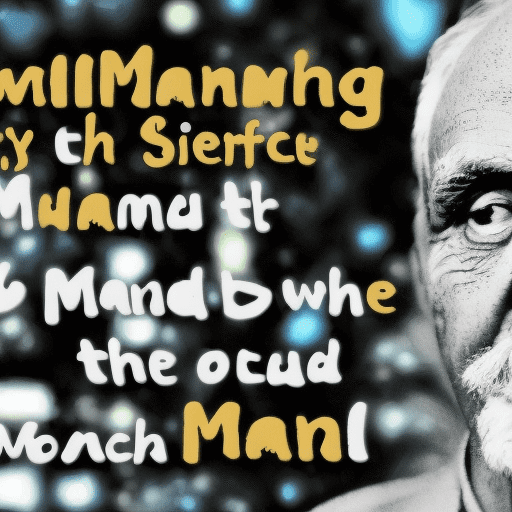The scientific name of the man is Homo-sapiens.
This may come as a surprise to some, but the human species has been given a scientific name.
Scientists have classified man as a mammal and given him the binomial name Homo-sapiens.
In this blog post, we will explore the meaning behind this scientific name and discuss some of the other characteristics that make us unique as a species.

Homo-sapiens is the scientific name of man.
Sapiens is Latin for “wise.”
It is the species name for our genus, Homo, and it aptly describes us as the only animal on Earth that can think about the future and plan for it.
What is the scientific name of the man and what does it mean?
Human beings have a scientific name, Homosapiens, which is derived from Latin and means ‘wise man.
Explain it to a child
The scientific name for man is Homosapiens. Sapiens is Latin for “wise.” Homosapiens is the only animal on Earth that can think about the future and plan for it.
It was first used to refer to our species during the period of the Enlightenment as scientists began to reevaluate earlier assumptions about humanity’s place in the universe.
The scientific name reflects the fact that humans have evolved an impressive level of cognitive abilities, allowing us to understand and manipulate our environment in ways that other species cannot.
Developments such as language and technology give us an edge over other organisms, and it is fitting that we are referred to as wise men (Homo-sapiens) as we move forward into unknown challenges.
Our ability to recognize abstract concepts such as beauty, creativity, and love gives us a unique perspective on this world and makes Homo-sapiens quite remarkable among all species on Earth.
We take pride in our capacity for ingenuity, thought, and reflection – each human being capable of amazing feats because of this honorific title: wise man or Homo-sapiens.
What makes us unique as a species and why is Homo-sapiens the only animal on Earth that can think about the future and plan for it?
What makes us human?

Without a doubt, it is our ability to plan for the future.
Our understanding of cause and effect, along with our capacity for abstract thought, allows us to anticipate what may happen days, weeks, or months ahead.
This is an ability that goes far beyond mere instinct — we are literally able to think through complex scenarios and anticipate how they may turn out in the future.
In fact, it is this very mindset that has enabled us to create complex civilizations and make great scientific leaps forward over the course of history.
From an evolutionary standpoint, this ability has also allowed us to secure access to vital resources and exploit our environment in new ways without relying solely on instinctual behavior – crucial ingredients in our species’ rise to dominance over all other animals on Earth.
It is therefore no surprise that Homosapiens are the only species capable of considering the long-term consequences of their actions and planning for them accordingly; it truly sets us apart from every other species on Earth.
This cognitive advantage has pushed humanity into many unknown landscapes filled with new risks, challenges, and opportunities never before encountered by any other animal on Earth – giving rise to a continual process of evolution and development unlike any found anywhere else in nature
From a historical perspective, these skills have helped us puzzle together ancient paths and build monuments destined to stand for centuries later; from a practical perspective, they enable us today to accurately model complex scenarios such as financial markets or epidemiological data; while in everyday life they simply guide us towards smarter decision-making both now and in the future.
Thus, our unique aptitude for foresight sets up apart as individuals and collectively as Homo-sapiens – it is one of several traits which allows humanity alone among numerous species populating Planet Earth right now.
How has man evolved over time and what challenges does he face in the future?
Throughout history, mankind has experienced remarkable changes as we have evolved from our hunter-gatherer ancestors to species capable of incredible advancements in technology, medicine, and civilization.

In terms of physical traits, human bodies have become increasingly more efficient over time, adapting to the ever-evolving environment and sharpening our senses.
But perhaps the most significant change has been the development of language and communication.
Thanks to these developments, humans are able to share ideas and knowledge within their communities – an essential trait for continued progress.
Looking ahead into the future, mankind faces a variety of challenges including climate change, growing population levels, and the threat of pandemics.
These threats can only be mitigated through collective action fuelled by cooperation rather than competition – something that generations before us rarely had access to due to limited social interaction.
Fortunately for us now, science has enabled unprecedented global collaboration which will help us confront any challenge that comes our way in this rapidly evolving world.
What are some of the other characteristics that make us special as a species?

As members of the human race, we are unique in many ways.
To start, our brains are capable of forming and interpreting language, providing us with an entirely new level of communication.
Then there is our capacity for creativity, allowing us to imagine and design things that never existed before.
Our adaptability and resilience give us the strength to tackle difficult challenges head-on.
We also have a strong sense of empathy and social responsibility that serves as one of our core values as a species, enabling us to excel on a global level throughout history.
But perhaps one of the most remarkable characteristics that make us special as a species is our drive to explore.
We seek new lands in order to expand our understanding, often taming and exploring distant lands with only primitive tools at hand.
This hunger for exploration has been tested time and again, making way for discoveries that continue to shape life on Earth today.
It truly is an incredible thing to consider just how much we can accomplish with both our hands and our minds!
All of these features combine to cement human beings’ place as one of the greatest species ever known!
We may not be perfect – but we’re definitely special!
How will knowing the scientific name of man help us better understand ourselves and our place on Earth?

A scientific name can provide surprisingly profound insights into our species and our place in the world.
When scientists assign Homosapiens as the scientific name of man, they are recognizing that we are part of a larger cosmic family.
While many think of humans as being at the pinnacle of creation, this description actually puts us in our rightful place as merely one species among millions inhabiting Earth.
With this language, scientists remind us that although we have had an outsized role in shaping this planet for thousands of years, we must share its bounty with the countless other creatures that call it home.
Knowing Homosapiens is also a reminder to treat all beings – including ourselves – with respect and humility.
Our knowledge of our scientific name should inspire in us the recognition that we are both all-mighty and, at once, insignificantly tiny components of a complex biological network on which life on Earth depends.
Such understanding drives assurance that through collaboration and altruism, humanity will remain resilient despite even the most extreme obstacles or terrible challenges facing our species today.
Knowing Homosapiens is ultimately an act of reverence towards ourselves and all other forms of life on Earth who share their names within its extensive taxonomy — uniting us all under one compassionate calling: homo-sapiens sapiens.
We exist together on this planet in harmony; let’s always remember it!
Article Sources
Jacks of Science sources the most authoritative, trustworthy, and highly recognized institutions for our article research. Learn more about our Editorial Teams process and diligence in verifying the accuracy of every article we publish.
